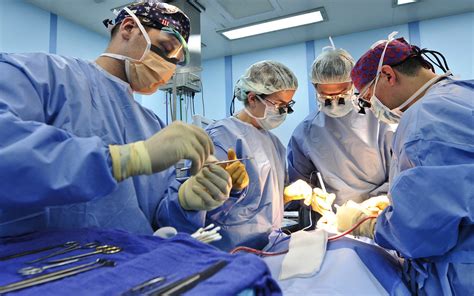The operating room is a highly specialized environment that requires a team of skilled professionals to work together to ensure successful surgical outcomes. One crucial member of this team is the operating room technician, also known as a surgical technologist or operating room assistant. In this article, we will explore the world of operating room technician jobs and career outlook.
What is an Operating Room Technician?

An operating room technician is a healthcare professional responsible for preparing and maintaining the surgical environment, as well as assisting surgeons, anesthesiologists, and nurses during surgical procedures. Their primary goal is to ensure that the operating room is safe, efficient, and well-organized, allowing the surgical team to focus on providing the best possible care to patients.
Key Responsibilities of an Operating Room Technician
The duties of an operating room technician can vary depending on the specific job and institution, but some common responsibilities include:
- Preparing the operating room and equipment for surgical procedures
- Sterilizing and maintaining surgical instruments and equipment
- Assisting surgeons, anesthesiologists, and nurses during surgical procedures
- Maintaining a safe and clean environment in the operating room
- Handling and disposing of surgical supplies and equipment
- Providing patient care and support during the surgical process
Education and Training Requirements

To become an operating room technician, one typically needs to complete a formal education program in surgical technology. These programs are usually offered at community colleges, vocational schools, or universities and can lead to a certificate, diploma, or associate's degree.
Surgical technology programs typically include both classroom and clinical training, covering topics such as:
- Anatomy and physiology
- Surgical procedures and techniques
- Patient care and safety
- Sterilization and infection control
- Surgical instrumentation and equipment
Certification and Licensure
While certification is not always required, it is highly recommended for operating room technicians. The most common certification is the Certified Surgical Technologist (CST) credential, offered by the National Board of Surgical Technology and Surgical Assisting (NBSTSA).
Some states also require licensure to practice as an operating room technician. Requirements for licensure vary by state, so it's essential to check with the state's licensing authority for specific requirements.
Job Outlook and Career Advancement

The job outlook for operating room technicians is excellent, with the Bureau of Labor Statistics (BLS) predicting a 3% growth in employment opportunities from 2020 to 2030. This growth is driven by an aging population, increased demand for surgical services, and advances in medical technology.
With experience and additional education, operating room technicians can advance to leadership positions, such as:
- Surgical technologist educator
- Operating room manager
- Surgical services coordinator
- Patient care coordinator
Specializations and Salary Ranges
Operating room technicians can specialize in specific areas, such as:
- Cardiovascular surgery
- Neurosurgery
- Orthopedic surgery
- Pediatric surgery
Salary ranges for operating room technicians vary depending on location, experience, and specialization. According to the BLS, the median annual salary for surgical technologists was $51,510 in May 2020.
Conclusion
A career as an operating room technician can be rewarding and challenging, offering opportunities for growth and advancement. With the right education, training, and certification, individuals can excel in this field and make a positive impact on patient care and surgical outcomes.
We invite you to share your thoughts and experiences on this topic. What do you think are the most critical skills and qualities for an operating room technician to possess? How can we improve education and training programs for surgical technologists? Share your comments below!





What is the average salary for an operating room technician?
+The average salary for an operating room technician varies depending on location, experience, and specialization. According to the BLS, the median annual salary for surgical technologists was $51,510 in May 2020.
Do I need to be certified to work as an operating room technician?
+While certification is not always required, it is highly recommended for operating room technicians. The most common certification is the Certified Surgical Technologist (CST) credential, offered by the National Board of Surgical Technology and Surgical Assisting (NBSTSA).
What are the typical responsibilities of an operating room technician?
+The typical responsibilities of an operating room technician include preparing and maintaining the surgical environment, assisting surgeons, anesthesiologists, and nurses during surgical procedures, and maintaining a safe and clean environment in the operating room.
